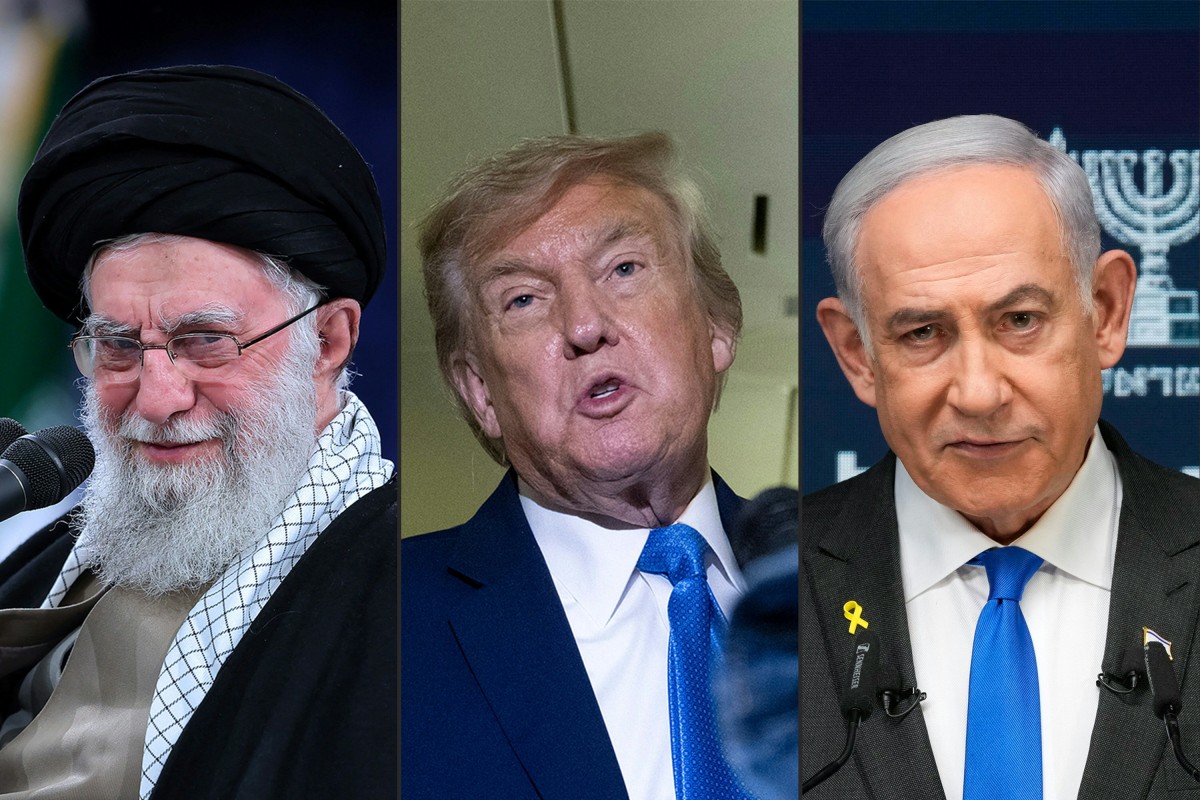
Wafric News – June 19, 2025
Tehran – Iran’s Supreme Leader Ayatollah Ali Khamenei has vowed that the Islamic Republic will never capitulate to foreign pressure, as Tehran launched a wave of hypersonic missiles at Israel on the sixth day of a rapidly escalating conflict.
Speaking in a televised address on Wednesday, Khamenei firmly rejected calls for surrender, particularly targeting recent remarks from former U.S. President Donald Trump, who demanded Iran’s “unconditional surrender.” Khamenei called the ultimatum “unacceptable,” warning Washington that any military involvement would bring “irreparable damage.”
“This nation will never surrender,” he declared.
The launch of the Fattah hypersonic missiles was reported by Iranian state media, accompanied by announcements from the Islamic Revolutionary Guard Corps (IRGC) that so-called “super-heavy, long-range” missiles had also been deployed.
According to Israeli military sources, Iran has fired approximately 400 ballistic missiles and launched around 1,000 drones since the conflict erupted on Friday. About 20 of those missiles are said to have struck civilian areas within Israel.
In a bold escalation, Israeli Defense Minister Israel Katz said the Israeli Air Force had successfully destroyed Iran’s internal security headquarters in Tehran. AFP reporters in the capital described hearing powerful explosions echoing across the city.
Meanwhile, Iran plunged deeper into digital isolation as a London-based watchdog reported a “near-total internet blackout” across the country. The government has since tightened online restrictions, citing the need to combat “hostile activity.”
US-Iran Tensions Flare
While tensions soar on the battlefield, political maneuvering continues off it. Trump, speaking from the White House, appeared to leave the door open to both negotiations and military action.
“My patience has run out,” Trump said. “But the option for talks is not off the table.”
He later hinted at the possibility of regime change in Iran and even claimed the U.S. could assassinate Khamenei — but had chosen not to act “for now.”
Israeli Prime Minister Benjamin Netanyahu expressed gratitude to Trump, calling him a “great friend of Israel” for his backing of Israel’s defense systems.
Iran’s Foreign Minister Abbas Araghchi responded via a post on X (formerly Twitter), asserting that Tehran remains open to diplomacy but reserves the right to retaliate in self-defense.
“So far, Iran has only targeted the Israeli regime—not those backing it,” he said.
International Reactions and Escalation
Russian President Vladimir Putin addressed the situation Thursday, calling for a diplomatic resolution. He emphasized that a peace deal was still achievable—one that could balance Israeli security with Iran’s right to a civilian nuclear program.
Putin also noted that Iran had not sought military assistance from Russia.
Despite fierce rhetoric, both sides have suffered deeply. Netanyahu acknowledged “painful losses” on the Israeli side, with at least 24 fatalities and hundreds injured since the conflict began, according to his office.
Iran, for its part, reported that Israeli airstrikes had killed at least 224 people, including senior military figures, scientists, and civilians. That toll has not been updated in recent days.
Israel maintains that its offensive is aimed at preventing Iran from developing nuclear weapons—an ambition Tehran consistently denies.
Economic Toll and Civilian Impact
Inside Iran, the war is beginning to take a toll on daily life. Fuel shortages have led to hours-long queues at petrol stations, especially near border regions like Bashmakh. Essential goods such as bread, rice, sugar, and tea are increasingly scarce, residents told Wafric News.
“People are shocked and distraught. They don’t know what’s coming next,” said a car dealer from Bukan, speaking on condition of anonymity.
Nuclear Infrastructure Targeted
The International Atomic Energy Agency (IAEA) confirmed Wednesday that Israeli airstrikes had damaged two sites involved in Iran’s nuclear development near Karaj, a city west of Tehran. One of the targeted facilities reportedly manufactured parts for centrifuges—machines essential for enriching uranium.
A separate strike in Tehran hit a building where components for advanced centrifuges were tested and assembled, further undermining Iran’s nuclear infrastructure.
As the war deepens, regional and global powers remain on edge, bracing for what could become one of the most consequential conflicts in the Middle East in recent memory.
By WafricNews Desk.


Comment
To post a comment, you have to login first
LoginNo Comments Yet...